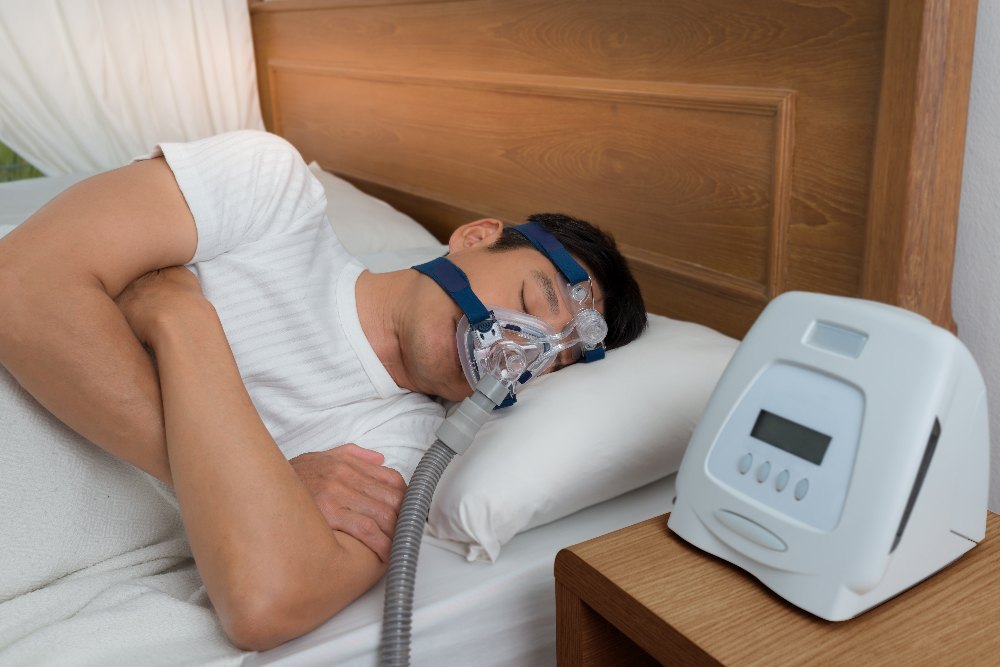Snoring: – Understanding, Treating, and Reclaiming a Peaceful Sleep
The rhythmic rasp, the guttural honk, the symphony of nighttime disruption – snoring, far from a lullaby, can wreak havoc on sleep for both snorers and their bed partners. But fear not, weary warriors of the nighttime battlefield! This guide delves into the world of snoring, unveiling its causes, exploring treatment options, and guiding you towards a peaceful slumber for everyone.
Demystifying the Snoring Enigma:
Snoring arises when air struggles to flow freely through the upper airway during sleep. It can be caused by:
- Narrowed airways: Enlarged tonsils, adenoids, or a deviated septum can restrict airflow.
- Soft tissue collapse: Relaxed throat muscles can vibrate as air passes through, creating the snoring sound.
- Lifestyle factors: Excess weight, alcohol consumption, and allergies can contribute to snoring.
Unveiling the Spectrum of Snoring:
Not all snores are created equal. Different intensities and patterns may point to underlying conditions:
- Simple snoring: This mild form isn’t usually harmful and may not disrupt sleep significantly.
- Primary snoring: This chronic snoring, while not directly dangerous, can significantly impact sleep quality for both snorers and their partners.
- Obstructive sleep apnea (OSA): This serious condition involves periods of interrupted breathing due to complete or partial airway blockage. It can lead to serious health consequences if left untreated.
Recognizing the Red Flags of OSA:
Differentiating between harmless snoring and potential OSA is crucial. Look out for these warning signs:
- Excessive daytime sleepiness: Feeling constantly tired despite adequate sleep can be a sign of OSA.
- Gasping or choking episodes during sleep: This is a telltale sign of the airway completely collapsing during sleep.
- Morning headaches: Chronic headaches upon waking can be linked to OSA.
- Mood swings and cognitive issues: Depression, anxiety, and memory problems can be associated with OSA.
Navigating the Treatment Terrain:
The good news? Snoring and OSA have diverse treatment options, so you can find your path to peaceful sleep!
Lifestyle Modifications:
For simple snoring and mild OSA, lifestyle changes can be surprisingly effective:
- Weight loss: Reducing excess weight can significantly improve airway space and decrease snoring.
- Limiting alcohol: Alcohol relaxes throat muscles, worsening snoring.
- Quitting smoking: Smoking irritates the airway and worsens snoring and OSA.
- Sleeping on your side: Back sleeping can worsen snoring; side sleeping improves airflow.
- Elevating your head: Propping your head up slightly can open the airway while sleeping.
Medical and Surgical Interventions:

If lifestyle changes aren’t enough, various medical and surgical options exist:
- Continuous positive airway pressure (CPAP): This device delivers pressurized air through a mask while sleeping, keeping the airway open.
- Mandibular advancement devices (MADs): These oral appliances hold the jaw forward, widening the airway during sleep.
- Surgery: In some cases, procedures like tonsillectomy or uvulopalatopharyngoplasty (UPPP) may be recommended to remove excess tissue and improve airflow.
Your Partner in Restful Nights: The Role of Sleep Doctors:
Sleep doctors, often called somnologists, are specialized experts in sleep disorders like snoring and OSA. They can:
- Diagnose the cause of your snoring: Through history taking, physical exam, and sleep studies, they can identify the underlying issue.
- Develop a personalized treatment plan: They’ll tailor a plan based on the severity of your snoring, your preferences, and underlying health conditions.
- Monitor your progress: Regular follow-up appointments ensure your treatment is effective and adjust it if needed.
Beyond the Treatment Battlefield: Reclaiming Sleep and Quality of Life:
Remember, treating snoring and OSA isn’t just about silencing the night; it’s about reclaiming your health and well-being. Improved sleep can lead to:
- Increased energy levels: Say goodbye to daytime fatigue and hello to a more productive life.
- Improved mood and cognitive function: Better sleep enhances focus, memory, and emotional well-being.
- Reduced risk of health complications: OSA can increase the risk of heart disease, stroke, and other chronic conditions. Treating it can dramatically reduce these risks
So, don’t let snoring steal your sleep and well-being! Understand its causes, explore treatment options, and consult a sleep doctor. With the right approach, you can reclaim your quiet nights and awaken to a life brimming with energy and health.

